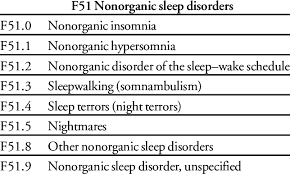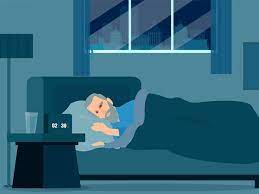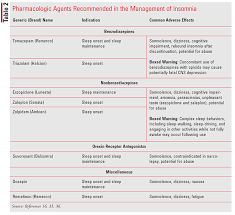Understanding ICD-10 Insomnia: Diagnosis and Treatment
Insomnia is a common sleep disorder that affects millions of people worldwide. In the medical field, insomnia is classified and diagnosed using the International Classification of Diseases, Tenth Revision (ICD-10) coding system. Understanding the ICD-10 coding for insomnia is crucial for healthcare professionals to accurately diagnose and treat patients suffering from this condition.
ICD-10 Code for Insomnia
In the ICD-10 coding system, insomnia is classified under code F51.01. This code specifically refers to “insomnia disorder” characterized by difficulty falling asleep, staying asleep, or experiencing non-restorative sleep despite adequate opportunity for sleep.
Diagnosis of Insomnia Using ICD-10
To diagnose insomnia using the ICD-10 coding system, healthcare providers assess the patient’s reported symptoms, medical history, and sleep patterns. The presence of persistent difficulty initiating or maintaining sleep that results in significant distress or impairment in daily functioning is essential for an accurate diagnosis of insomnia disorder.
Treatment Options for Insomnia
Once diagnosed with insomnia using the ICD-10 code F51.01, patients may be offered various treatment options based on the severity and underlying causes of their sleep disorder. Common treatment approaches include:
- Lifestyle Modifications: Implementing healthy sleep habits such as maintaining a consistent sleep schedule, creating a relaxing bedtime routine, and avoiding stimulants like caffeine before bedtime.
- Cognitive-Behavioral Therapy for Insomnia (CBT-I): A structured program that helps individuals change their thoughts and behaviors related to sleep to improve their quality of rest.
- Medications: In some cases, healthcare providers may prescribe medications to help manage insomnia symptoms. These may include sedatives or hypnotics.
- Alternative Therapies: Techniques such as relaxation exercises, mindfulness meditation, or acupuncture may also be beneficial in managing insomnia.
Conclusion
Understanding the ICD-10 classification for insomnia is essential in diagnosing and treating individuals struggling with this common sleep disorder. By utilizing appropriate diagnostic codes and implementing effective treatment strategies, healthcare professionals can help patients improve their quality of sleep and overall well-being.
Understanding ICD-10 Coding for Insomnia: Diagnosis, Symptoms, and Treatment Options
- What is the ICD-10 code for insomnia?
- How is insomnia diagnosed using the ICD-10 coding system?
- What are the common symptoms associated with insomnia disorder under ICD-10?
- What treatment options are available for insomnia based on the ICD-10 classification?
- Are there specific criteria that need to be met for a diagnosis of insomnia under ICD-10?
What is the ICD-10 code for insomnia?
The ICD-10 code for insomnia is F51.01. This specific code categorizes insomnia as an “insomnia disorder,” characterized by difficulties in falling asleep, staying asleep, or experiencing non-restorative sleep despite having adequate opportunities for rest. Healthcare professionals use this designated code to accurately diagnose and document cases of insomnia in patients, ensuring proper classification and treatment of this common sleep disorder.
How is insomnia diagnosed using the ICD-10 coding system?
To diagnose insomnia using the ICD-10 coding system, healthcare providers rely on assessing the patient’s reported symptoms, medical history, and sleep patterns. The specific code for insomnia in the ICD-10 system is F51.01, which denotes “insomnia disorder.” Clinicians look for persistent difficulty in falling asleep, staying asleep, or experiencing non-restorative sleep despite having adequate opportunity for rest. The presence of these symptoms causing significant distress or impairment in daily functioning is crucial for an accurate diagnosis of insomnia using the ICD-10 classification. By understanding and utilizing the appropriate diagnostic code, healthcare professionals can effectively identify and address this common sleep disorder in patients.
What are the common symptoms associated with insomnia disorder under ICD-10?
Common symptoms associated with insomnia disorder under ICD-10 include difficulty falling asleep, staying asleep, or experiencing non-restorative sleep despite having the opportunity to rest. Individuals with insomnia may report feeling tired or fatigued during the day, experiencing irritability or mood disturbances, and having difficulties concentrating or remembering tasks. Insomnia can also lead to decreased productivity, impaired social interactions, and overall reduced quality of life. Proper diagnosis and treatment of insomnia based on the ICD-10 coding system are essential to address these symptoms and improve sleep quality.
What treatment options are available for insomnia based on the ICD-10 classification?
When it comes to addressing insomnia based on the ICD-10 classification, a range of treatment options is available to help individuals manage and improve their sleep disorder. These options include lifestyle modifications, such as establishing a consistent sleep schedule and practicing relaxation techniques before bedtime. Cognitive-Behavioral Therapy for Insomnia (CBT-I) is another effective approach that focuses on changing negative thought patterns and behaviors related to sleep. In some cases, healthcare providers may prescribe medications like sedatives or hypnotics to aid in sleep management. Alternative therapies such as mindfulness meditation or acupuncture can also be beneficial for individuals seeking non-pharmacological interventions for their insomnia symptoms. By considering these diverse treatment modalities, individuals diagnosed with insomnia under the ICD-10 coding system have a variety of options to explore in their journey toward better sleep health.
Are there specific criteria that need to be met for a diagnosis of insomnia under ICD-10?
In order to receive a diagnosis of insomnia under the ICD-10 classification system, specific criteria must be met. The primary criterion for diagnosing insomnia disorder is the presence of persistent difficulty initiating or maintaining sleep, or experiencing non-restorative sleep despite having adequate opportunity for rest. Additionally, these sleep disturbances should result in significant distress or impairment in daily functioning. Healthcare providers rely on these criteria to accurately identify and classify individuals suffering from insomnia according to the guidelines outlined in the ICD-10 coding system.




